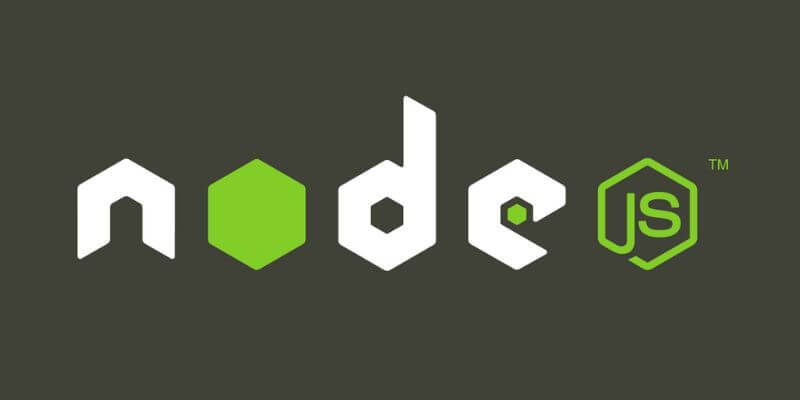Node.js stands among the array of programming languages and frameworks that have garnered immense popularity, deeply influencing the IT landscape in the nation. Famed for its scalability, versatility, and efficiency, Node.js has transformed the methodology for creating web applications. This article delves into the historical significance and current state of Node.js development within India.
What is Node.js?
Node.js, an open-source JavaScript runtime environment compatible across platforms, enables developers to execute JavaScript code beyond the constraints of a web browser. It utilizes the V8 JavaScript engine, the same engine empowering Google Chrome, to furnish a runtime space for executing JavaScript code on the server side.
Traditionally, JavaScript primarily functioned for building interactive websites through client-side scripting within web browsers. However, Node.js broadens JavaScript’s application beyond the browser, significantly benefiting server-side programming. This expansion has unified and streamlined the programming process, empowering developers to utilize JavaScript for both client-side and server-side development
Because of its non-blocking, event-driven I/O design, Node.js is especially well-suited for developing scalable, high-performance applications. Its architecture allows it to do asynchronous tasks and manage several connections at once. This is especially helpful for apps that need to communicate with multiple users at once or require real-time updates, such as chat programs, streaming services, and online gaming platforms.
Why Do We Use Node.js?
Due to its distinct features and skills that make it ideal for contemporary web development, Node.js is utilized for a variety of purposes. Among the main justifications for utilizing Node.js are:
1. JavaScript for Frontend and Backend:
Unified Language: Node.js enables JavaScript to be used by developers for server-side and client-side (browser-based) programming. By using a single programming language to work across the full stack, this unification simplifies the development process.
2. Asynchronous and Non-Blocking I/O:
Efficiency: Node.js can manage numerous concurrent connections with ease since it uses an event-driven, non-blocking I/O paradigm. Applications that demand high parallelism and real-time interaction will find this asynchronous nature especially helpful.
3. Scalability:
Horizontal Scaling: Node.js applications are highly scalable. They can handle increased load by adding more nodes to the existing system without compromising performance, making it suitable for rapidly growing applications.
4. Large Ecosystem and Package Management:
npm (Node Package Manager): With npm, Node.js provides access to a wide ecosystem of open-source libraries. Using these libraries, modules, and tools accelerates development, simplifying access, exchange, and reuse of code for developers.
5. Fast Execution:
V8 Engine: Node.js is built on the V8 JavaScript engine, developed by Google for Chrome. It compiles JavaScript directly into machine code, resulting in fast execution and performance.
6. Real-Time Applications and Microservices:
Real-Time Functionality: Node.js enables developers to create real-time applications such as chat apps, streaming services, gaming platforms, and collaborative tools. It is perfect for such applications because of its event-driven architecture and ability to handle asynchronous tasks.
7. Community Support and Continuous Improvement:
Active Community: Globally, Node.js has a sizable and vibrant developer community. By resolving problems, including new features, and upholding the framework’s applicability, this community actively contributes to the platform’s development.
8.Cost-Effective Solutions
Cost Optimization: Scalable apps can be developed with Node.js at comparatively minimal infrastructure expenses. Its concurrent request handling capabilities and lightweight architecture make it a desirable option for companies looking to develop products at a reasonable cost.
Significance of Node.js Development in India
The significances of Node.js Development in India include:
1. Developer Community and Talent Pool
India boasts a vast pool of tech talent, with numerous skilled developers proficient in JavaScript. Node.js found a receptive audience in the country due to its alignment with JavaScript, a language well-known and extensively used in the Indian developer community. This familiarity accelerated the adoption and integration of Node.js in various development projects.
2. Startups and Enterprises Embracing Node.js
The expansion of Node.js’s ecosystem within India stands as a pivotal driver of the platform’s widespread appeal. Startups actively sought technologies enabling swift, effortless, and efficient app development. Given Node.js’s adeptness in efficiently managing multiple requests concurrently, it swiftly became the preferred platform for entrepreneurs aiming to construct innovative and scalable products.
Well-known Indian businesses also used Node.js to update their current applications. These companies experienced problems, but the technology’s ability to handle real-time applications and microservices architecture provided answers.
3. Cost-Effectiveness and Scalability
The efficient and lightweight architecture of Node.js offered enterprises affordable alternatives. Node.js development presented an alluring offer, enabling businesses to create scalable apps while maintaining relatively cheap infrastructure expenses in a competitive market like India where cost optimization is vital.
Current State of Node.js Development in India
1. Variability in Utilization
A multitude of sectors such as media, e-commerce, healthcare, education, and finance heavily lean on Node.js. The adaptability inherent in Node.js empowers Indian developers to craft applications specifically tailored to meet the unique demands of their respective industries.
2. The Use of Complete-Stack Development
In India, the full-stack development approach, prominently leveraging Node.js, gained significant traction. This methodology empowers developers to seamlessly manage both the front-end and back-end aspects of programs, thereby streamlining processes and amplifying overall productivity.
3. Engagement with Open Source
Active members of the Node.js open-source community are Indian developers. Their code, documentation, and problem-solving contributions have been essential to the development and improvement of Node.js’s functionality.
Challenges and Future Prospects
Even though Node.js has become popular in India, some issues still exist. Scalability is still an issue, particularly for extensive applications. Developers are concentrating on making improvements to the framework so that it can manage complicated designs better.
Future prospects for Node.js development in India seem bright. As it continues to evolve, adding features to address scalability problems and improving security standards, Node.js is well-positioned to establish itself in the Indian IT industry.
Conclusion
Node.js has transformed the Indian IT scene by boosting the creativity and efficiency of application development. Its broad acceptance has been fueled by its capacity to meet the various needs of enterprises and the robust developer community in the nation. The development of Node.js is evidence of India’s ability to adopt and apply cutting-edge technologies for revolutionary change, as the nation continues to grow as a technological powerhouse.
You May Also like:
Exploring the Sony Alpha 7C Mirrorless Digital Camera: Compact Powerhouse









